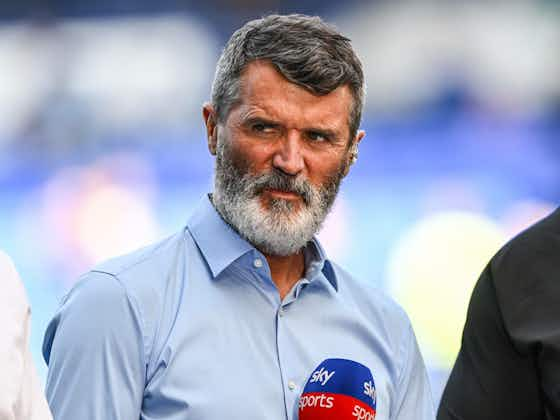EPL Index
·4 novembre 2024
Roy Keane: Man Utd Needs Players with the Club’s DNA and Grit

In partnership with
Yahoo sportsEPL Index
·4 novembre 2024

In a recent Sky Sports segment, former Manchester United captain Roy Keane shared his unfiltered views on the club’s current squad and their perceived shortcomings. Speaking with his characteristic candour, Keane addressed what he believes is lacking in the modern Manchester United player—the DNA essential to embody the true spirit of the club. This analysis offers insights drawn directly from Keane’s commentary, providing an eye-opening critique on leadership, commitment, and the essence of a team player.
Keane’s primary concern revolved around the fundamental qualities he feels are now missing at Manchester United. “These players haven’t got the DNA,” he said bluntly, underscoring his belief that many in the current lineup fall short of the standards set by previous generations. This idea of DNA isn’t abstract for Keane; it represents resilience, unity, and a relentless work ethic. He emphasised, “When you play football, your own DNA should suggest that you’re a good team player… when the go gets tough, you roll your sleeves up.”
For Keane, it’s not enough to have talent. Players at a club like Manchester United must exhibit a commitment that goes beyond technical skills. The Irishman noted, “You’re not playing an individual sport. So when the go gets tough, you become a team player.” Such unity was foundational during Keane’s era, and his critique implies that the absence of this trait has left a gap in the current squad’s performances.
Discussing Bruno Fernandes, Keane did not mince his words. “I don’t think Bruno done enough as a captain of Man United over the last year or two to help the manager out,” he stated, pointing to a lack of consistent leadership when it was most needed. The former midfielder was clear about the expectation for leaders within the team to step up during challenging moments: “You’re judged on what you do on the football pitch.”

Photo: IMAGO
This notion extended beyond Fernandes to the broader group of players. Keane expressed disappointment in the way players responded to managerial changes. He shared, “A lot of players don’t care that much when a manager goes… they get ready and look after themselves.” For Keane, this selfishness is emblematic of a larger problem in modern football.
A key theme in Keane’s comments was accountability. The former captain found it difficult to accept players offering apologies or excuses post-match. “I wouldn’t have much time and patience for a player to say, ‘Sorry, we’ve let you down.’ Too little, too late,” he remarked. His message was that results and effort should speak louder than any post-game platitudes. For Keane, this self-reflection should occur internally and manifest in performances that show heart and determination.
The former player underscored that it’s not merely about liking or disliking the manager. “Even if I despised them, I didn’t want to let them down when I was on the pitch,” Keane affirmed. This commitment to giving one’s best, irrespective of personal feelings toward management, is what Keane views as part of the essential DNA of a Manchester United player—a trait he believes many of today’s players lack.
Keane’s critique also came with a call for unity moving forward. Addressing the club’s current situation, he pointed out that for Manchester United to reclaim their former glory, the players need to work as a cohesive unit. “This football team needs to do now… they actively show a response to the new manager… and stay on top of yourself and on your game,” he emphasised.
While Keane’s words were harsh, they were steeped in experience and genuine passion for Manchester United. His direct challenge to the current players is a reminder of what it truly means to wear the badge and represent the club’s heritage. The question now is whether the current squad can internalise this critique and embody the DNA that Keane—and the club’s most ardent supporters—demand.






























































